 This self-published novel was recently donated by the author to the library where I work, a kindness that we appreciate. The author and I are both members of the Action Heroine Fans group here on Goodreads, and I was intrigued by his posts there about the book. Understanding (from experience!) the frustrations of waiting for reviews in today’s glutted book market, and being a fan of kick-butt female protagonists myself, I’d hoped to help him out with a good review, though he didn’t donate the book with any such expectation. As my rating indicates, my reaction wasn’t as positive as I’d hoped, so I would have refrained from writing a review at all; but Tom graciously indicated that he didn’t have a problem with a less than stellar review.
This self-published novel was recently donated by the author to the library where I work, a kindness that we appreciate. The author and I are both members of the Action Heroine Fans group here on Goodreads, and I was intrigued by his posts there about the book. Understanding (from experience!) the frustrations of waiting for reviews in today’s glutted book market, and being a fan of kick-butt female protagonists myself, I’d hoped to help him out with a good review, though he didn’t donate the book with any such expectation. As my rating indicates, my reaction wasn’t as positive as I’d hoped, so I would have refrained from writing a review at all; but Tom graciously indicated that he didn’t have a problem with a less than stellar review.
I’ll say at the outset that if you like to discover the plot of a novel (as opposed to the basic premise) for yourself as you read it, I would NOT advise reading the cover copy, which gives away a fair bit of the plot. Suffice it to say that our chronological setting is the year 3177. Chapter 2 begins –and Chapter 1 is just a one-page set-up; chapters here tend to be quite short, which helps the plot flow quickly– with our title character, a cook from Idaho in the Galactic Federation army (who’s recently been discovered to have extremely good natural marksmanship skills with a rifle) being acquitted by a court-martial of murder charges in the killing of her commanding officer, General Bloodworthy. The physical evidence overwhelmingly proved that General Bloodworthy had been raping her at the time. But the late General was the head of the Guardian Council, a semi-secret cabal of “right-wing” army officers who are suspected of self-serving and illegal behavior aimed at advancing and protecting their own members; and their power within the military makes them “virtually unstoppable.” Since it’s pretty plain that the Council will murder Belinda in retaliation for Bloodworthy’s death, Intelligence officer Lt. Col. Andrew Jackson Jones conceives the idea of spiriting her off-world for her own protection. (Why an Intelligence officer is serving on the Judge Advocate’s staff in the first place is only one of several unexplained problems here.) So these two characters take off for the stars, and the plot takes off along with them.
Holzel’s fictional universe has similarities to that of many other writers in the SF tradition: FTL space travel, a galaxy-spanning Federation, etc. But he puts his own original spin on this. Here, the Federation extends into several different galaxies, reachable by navigating through wormholes associated with black holes. There are, however, not very many habitable planets out there, and the few there are are populated by alien species that are all pretty much humanoid (this is explained by convergent Darwinian evolution adapting them all to similar conditions). Earth turned out to be the most technologically advanced of the lot (that, and the distances involved, might serve as a plausible explanation for the old chestnut about why, if there are alien civilizations out there, we’ve never picked up their radio waves, though Holzel doesn’t mention this). Jones and Belinda’s destination is the far-off, Jupiter-sized planet Magnus, a major source of a mineral that’s critical to FTL travel. The planet’s ultra-rapid rotation reduces its gravity around the equator to Earth-like levels, and its extremely strong magnetic field prevents electricity from being transmitted on the planet’s surface. As this discussion indicates, this novel is very much in the “hard” SF tradition. The effects of the planetary conditions on local technology are worked out in some detail, which will please fans who like that sort of thing. (Personally, I’m much more of a “soft” SF fan.)
I’m not scientifically knowledgeable enough to understand or evaluate much of Holzel’s above use of actual science, though I would say that it comes across as plausible. My interest in fiction, in this or any genre, is more in the human and literary elements of the stories. On that level, the plot is predictable, has serious logical gaps (beginning with the fact that the military even tolerates the Guardian Council to begin with, or that they would let a serving soldier simply go off planet with no orders), and IMO makes excessive use of coincidence. Some readers have found Belinda too passive; I’m not sure that criticism is entirely fair, since she grows here from a fairly naive and passive young woman to a greater maturity. But the characterizations are not well-developed, and I particularly don’t feel the romance as believable. (Jones treats Belinda with a degree of duplicity and manipulation that’s more or less treated here as just an example of how boys will be boys, but which I don’t think most women would or should accept.)
No serious Intelligence officer would confide his mission to total strangers the way Jones does twice here; and I seriously question whether it’s physically possible for one crucial plot point to have happened the way it did. The Galactic Federation’s policy of paternalistically controlling interstellar trade (to “protect” other species from the “bad” competition) and Exporting Democracy strikes me as a naive extension of the worst aspects of globalist American foreign policy extrapolated onto an inter-galactic scale, and the cavalier attitude of the characters towards mass destruction of innocent life with a tactical nuke was a really serious negative for me. There are also repeated editing issues, numerous plot points that are inadequately explained, and not much world building outside of the technological area. (A minor quibble is the unexplained variation in Belinda’s name, which seems to be random; I could understand “Bea” as a plausible nickname, but she’s also sometimes “Linda” rather than Belinda.)
On the positive side, I was interested enough in the story to finish it. There’s a certain amount of bad language (though I don’t recall any obscenity –there might be some I’ve forgotten) including religious profanity, but it’s probably within the bounds of realism for the milieu. Although there’s no explicit sex, there are sexual situations, and Belinda tends to be a frequent target of sexual harassment and rape attempts. However, this isn’t condoned, and it’s dealt with forcefully. I don’t think the “moral tendency” of the novel would be to encourage that sort of thing in any sense.
Author: Tom Holzel
Publisher: Self published, available through Amazon, both for Kindle and as a printed book.
A version of this review previously appeared on Goodreads.
 This Lovecraftian-inspired action/horror mix is full of good – or, at least, interesting – ideas. It plays almost like a Call of Cthulhu scenario, with the players having to defend the top-secret government facility of the title from a group of cultists who are attacking the base. They are aiming to liberate one of the Elder Gods, Erebus, who in the form of the human he has possessed (Johnson), is about to be deported back into the infinite darkness. This is the latest incident in an ongoing covert battle by humanity, which has been going on since the twenties, though with decreasing intensity. At least until now.
This Lovecraftian-inspired action/horror mix is full of good – or, at least, interesting – ideas. It plays almost like a Call of Cthulhu scenario, with the players having to defend the top-secret government facility of the title from a group of cultists who are attacking the base. They are aiming to liberate one of the Elder Gods, Erebus, who in the form of the human he has possessed (Johnson), is about to be deported back into the infinite darkness. This is the latest incident in an ongoing covert battle by humanity, which has been going on since the twenties, though with decreasing intensity. At least until now.




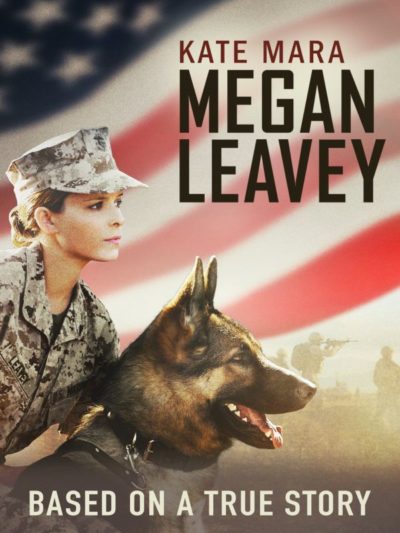 The crossing of war and animal genres of film isn’t one with much precedent, and you can see why: it would be difficult to balance those disparate elements. While this does a laudable effort, and manages to avoid sliding too far into the slippery road of sentimentality, it offers few surprises, even if you don’t know the true story on which it’s based.
The crossing of war and animal genres of film isn’t one with much precedent, and you can see why: it would be difficult to balance those disparate elements. While this does a laudable effort, and manages to avoid sliding too far into the slippery road of sentimentality, it offers few surprises, even if you don’t know the true story on which it’s based.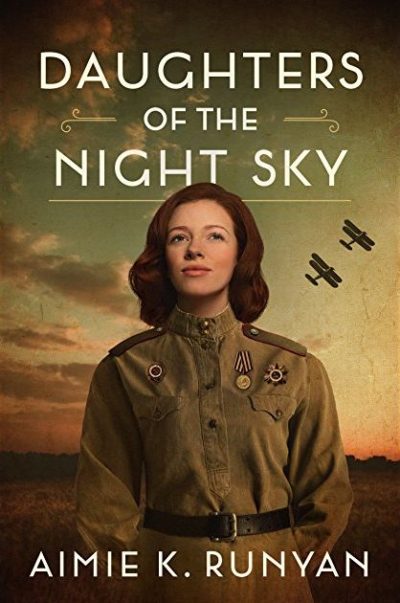 No army in recent military history has made more use of women than the Soviets during World War 2. As we’ve
No army in recent military history has made more use of women than the Soviets during World War 2. As we’ve  While not the first to be released, this was the first movie directed by Miike, who would go on to become one of the most prolific – yet, still, critically-lauded – directors to come out of Japan in the last quarter-century. Perhaps this is well-informed hindsight: yet, if still pretty basic in its content, it does feels at least somewhat above what you would expect from a straight-to-video movie by a first-time director.
While not the first to be released, this was the first movie directed by Miike, who would go on to become one of the most prolific – yet, still, critically-lauded – directors to come out of Japan in the last quarter-century. Perhaps this is well-informed hindsight: yet, if still pretty basic in its content, it does feels at least somewhat above what you would expect from a straight-to-video movie by a first-time director. A mission in central America against drug cartel boss Reynaldo Benitez (Garza) goes wrong, leaving eight Special Ops soldiers dead. This includes the husband of Naval Covert Operations Command agent, Abbey Vaughn (Gregory), who is intent on discovering the truth about what happened to her spouse. She links up with the only survivor of the operation, Lt. Sam Harrigan (Scarbrough), now living in a trailer, and spending his time drinking and practicing golf. Together with the rest of their team, they investigate the case, only to find the tentacles of organized crime are deeper embedded than they appear, and their inquiries put not only themselves, but Abbey’s family in serious danger.
A mission in central America against drug cartel boss Reynaldo Benitez (Garza) goes wrong, leaving eight Special Ops soldiers dead. This includes the husband of Naval Covert Operations Command agent, Abbey Vaughn (Gregory), who is intent on discovering the truth about what happened to her spouse. She links up with the only survivor of the operation, Lt. Sam Harrigan (Scarbrough), now living in a trailer, and spending his time drinking and practicing golf. Together with the rest of their team, they investigate the case, only to find the tentacles of organized crime are deeper embedded than they appear, and their inquiries put not only themselves, but Abbey’s family in serious danger. This self-published novel was recently donated by the author to the library where I work, a kindness that we appreciate. The author and I are both members of the Action Heroine Fans group here on Goodreads, and I was intrigued by his posts there about the book. Understanding (from experience!) the frustrations of waiting for reviews in today’s glutted book market, and being a fan of kick-butt female protagonists myself, I’d hoped to help him out with a good review, though he didn’t donate the book with any such expectation. As my rating indicates, my reaction wasn’t as positive as I’d hoped, so I would have refrained from writing a review at all; but Tom graciously indicated that he didn’t have a problem with a less than stellar review.
This self-published novel was recently donated by the author to the library where I work, a kindness that we appreciate. The author and I are both members of the Action Heroine Fans group here on Goodreads, and I was intrigued by his posts there about the book. Understanding (from experience!) the frustrations of waiting for reviews in today’s glutted book market, and being a fan of kick-butt female protagonists myself, I’d hoped to help him out with a good review, though he didn’t donate the book with any such expectation. As my rating indicates, my reaction wasn’t as positive as I’d hoped, so I would have refrained from writing a review at all; but Tom graciously indicated that he didn’t have a problem with a less than stellar review.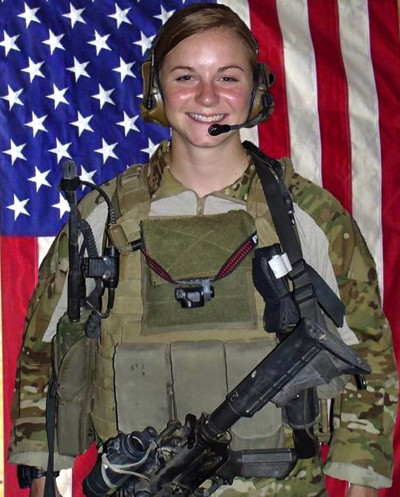


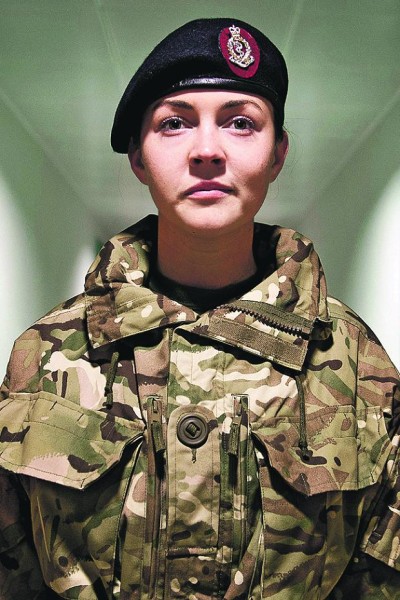
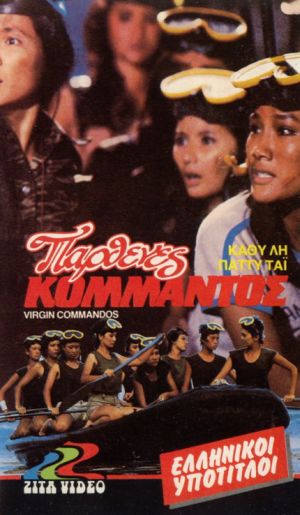 This came out the same year as Golden Queens Commando and Pink Force Commando and feels like a Taiwanese knock-off, taking a similarly bulk approach to its action heroines. They escape from (what I discovered lately was) a North Vietnamese prison, with the help of the warden, who is in love with one of his captives – he comes along too, and they all end up on an island where there’s a guerilla force, run by the Captain, whom we’ll get back to later. They become part of her “Ladies Marine Corps”, and start to train. One of the girls’ mothers shows up, offering to take her back to Hong Kong, but the farewell party is interrupted by pirates, who kill the mother. Two of the platoon desert. Finally – and we’re talking an hour into a movie that runs only 85 minutes – the training is over, and the Slightly-Irritated Frogwomen (movie titler, please note) head off on their first mission, to recover a cache of diamonds hidden on a North Vietnamese boat.
This came out the same year as Golden Queens Commando and Pink Force Commando and feels like a Taiwanese knock-off, taking a similarly bulk approach to its action heroines. They escape from (what I discovered lately was) a North Vietnamese prison, with the help of the warden, who is in love with one of his captives – he comes along too, and they all end up on an island where there’s a guerilla force, run by the Captain, whom we’ll get back to later. They become part of her “Ladies Marine Corps”, and start to train. One of the girls’ mothers shows up, offering to take her back to Hong Kong, but the farewell party is interrupted by pirates, who kill the mother. Two of the platoon desert. Finally – and we’re talking an hour into a movie that runs only 85 minutes – the training is over, and the Slightly-Irritated Frogwomen (movie titler, please note) head off on their first mission, to recover a cache of diamonds hidden on a North Vietnamese boat.